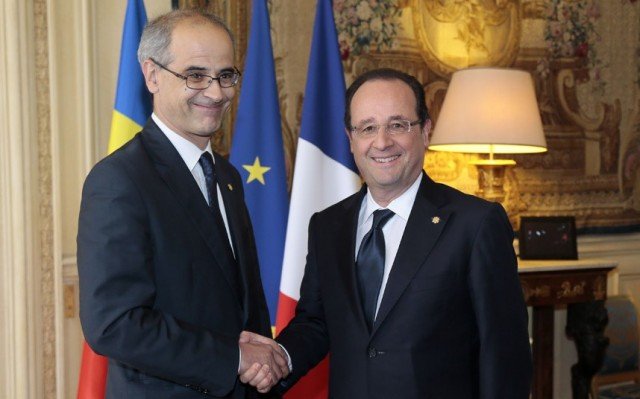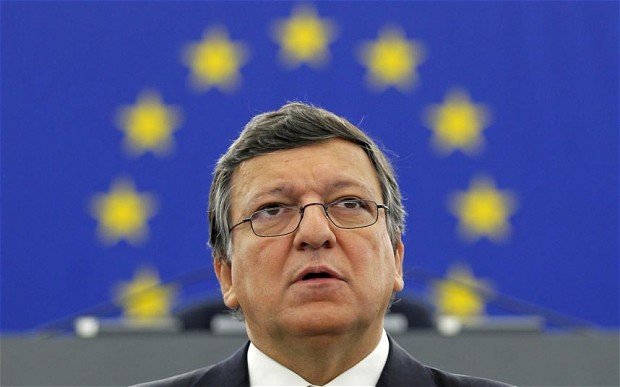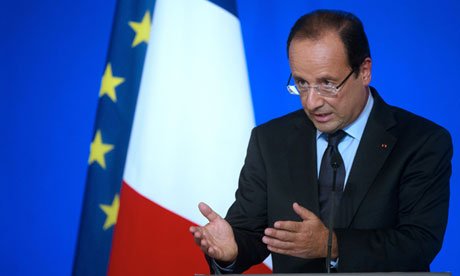Home Tags Posts tagged with "tax havens"
tax havens
Andorra has decided to introduce a tax on personal income for the first time as the country faces pressure from its European neighbors to tackle tax evasion.
Antoni Marti, the head of the Andorran government, told French President Francois Hollande that he will introduce a bill before June 30, 2013.
The principality will “gradually meet international tax standards”, according to the office of the French president.
There is currently no income tax applied to individuals or corporations.

Antoni Marti, the head of the Andorran government, told French President Francois Hollande that he will introduce a bill for income tax before June 30, 2013
EU finance ministers have agreed to start talks with Andorra – along with Switzerland, Liechtenstein, Monaco, and San Marino – on swapping bank account information.
Recently, the European Commission told the European Parliament it wants EU-wide exchange of all types of income data as part of the fight against tax evasion.
EU tax authorities already automatically exchanged information for income such as employment, pensions and insurance but not for income such as dividends and capital gains.
Tax evasion costs EU states 1 trillion euros ($1.3 trillion) a year, more than was spent on healthcare in 2008, the Commission has said, and some MEPs are calling for a Europe-wide blacklist of tax havens.
President Francois Hollande was meeting with Antoni Marti in Paris in his role as one of the two co-monarchs of Andorra, which is situated in the Pyrenees mountains between France and Spain.
More recently, France’s Socialist government was hit by a scandal, as former minister Jerome Cahuzac was forced to resign over tax fraud allegations. He later admitted that he had hidden about 600,000 euros in a Swiss bank account.
The head of the European Commission has told the European Parliament he wants EU-wide exchange of income data as part of the fight against tax evasion.
Jose Manuel Barroso said he would urge Wednesday’s summit of EU leaders to support automatic exchange of people’s earnings data between tax authorities.
Tax evasion costs EU states 1 trillion euros ($1.3 trillion) a year, more than was spent on healthcare in 2008.
MEPs are expected to call for a Europe-wide blacklist of tax havens.
Pressure is likely to be put on Switzerland to relax banking secrecy amid anger over revelations about Greek and French politicians holding secret Swiss bank accounts.
The debate comes a day after UK Prime Minister David Cameron urged British overseas territories which operate low-tax regimes to “get their house in order” and sign up to international treaties on tax.
Jose Manuel Barroso said he wanted to see the principle of automatic exchange “become the standard at international level as well”.
The US Senate is currently scrutinizing the low global tax payments of Apple Inc and its subsidiaries in the Republic of Ireland in particular.
The main subsidiary, a holding company that includes Apple’s retail stores throughout Europe, has not paid any corporate income tax in the last five years, a Senate memorandum says.
In his speech to the parliament, Jose Manuel Barroso asked: “How can we explain to honest households and businesses who are feeling the squeeze yet still paying their fair share of taxes, that there are other parts of society and enterprise who are deliberately avoiding paying up?”

Jose Manuel Barroso said he would urge Wednesday’s summit of EU leaders to support automatic exchange of people’s earnings data between tax authorities
A trillion euros was, he said, “a huge amount of money to simply let through the net”.
He said he would make a call at Wednesday’s summit of EU leaders for the EU to adopt automatic exchange of income information on 1 January 2015.
EU tax authorities, he pointed out, already automatically exchanged information for income such as employment, pensions and insurance but he was proposing to include “all relevant types of income, such as dividends and capital gains”.
Austria, which has a strong tradition of banking secrecy, would support EU efforts to exchange information on foreign depositors, Chancellor Werner Faymann was quoted as saying by Reuters news agency on Tuesday.
“We won’t be the ones who put on the brakes and block things, and not the ones whose concerns put up blockades,” he said.
He noted that 1 trillion euros was “pretty much exactly the EU budget for the next seven years”.
Europe’s cash-strapped governments cannot afford to lose a single cent in tax revenue, let alone 1 trillion euros a year.
At Tuesday’s debate, non-EU member Switzerland is expected to come under pressure to put in place new rules.
Even top Swiss bankers now admit time is running out for its trademark banking secrecy.
Last week EU finance ministers agreed to start talks with Switzerland, along with Liechtenstein, Monaco, Andorra and San Marino, on swapping bank account information.
Attempts to tighten up on tax evasion follow a furor in Greece over the so-called Lagarde list, containing the names of more than 2,000 Greeks including senior politicians with Swiss bank accounts.
More recently, France’s Socialist government was hit by a scandal, as former Budget Minister Jerome Cahuzac was forced to resign over tax fraud allegations.
He later admitted that he had hidden about 600,000 euros in a Swiss bank account.
France’s President Francois Hollande has called for “eradication” of the world’s tax havens and told French banks they must declare all of their subsidiaries.
Francois Hollande was speaking after presenting a draft law aimed at “moralizing” French public life – a response to the tax scandal that has shaken his presidency.
France’s ex-Budget Minister Jerome Cahuzac has been charged with fraud over a secret Swiss bank account.
President Francois Hollande said a new central agency would fight fraud and corruption.

France’s President Francois Hollande has called for “eradication” of the world’s tax havens
Earlier the French Socialist government set a deadline of April 15 for ministers to declare their assets, as part of the new transparency drive.
Jerome Cahuzac admitted last week that he had hidden about 600,000 euros ($770,000) in a Swiss bank account, causing shock in France. He has now been expelled from the Socialist Party for lying about his financial affairs.
Addressing a news conference on Wednesday, Francois Hollande said “tax havens must be eradicated in Europe and worldwide”.
“I won’t hesitate to consider as a tax haven any country that refuses to co-operate fully with France.”
The presidentsaid French banks “will have to publish every year the full list of their subsidiaries in the world, country by country”.
They will also have to explain their business, Francois Hollande said.
“In other words it won’t be possible for a bank to hide transactions carried out in a tax haven.”
A major study has found that global super-rich elite had at least $21 trillion hidden in secret tax havens by the end of 2010.
The figure is equivalent to the size of the US and Japanese economies combined.
The Price of Offshore Revisited was written by James Henry, a former chief economist at the consultancy McKinsey, for by the Tax Justice Network.
James Henry said his $21trillion is actually a conservative figure and the true scale could be $32 trillion. A trillion is 1,000 billion.
He used data from the Bank of International Settlements, International Monetary Fund, World Bank, and national governments.
James Henry’s study deals only with financial wealth deposited in bank and investment accounts, and not other assets such as property and yachts.

A major study has found that global super-rich elite had at least $21 trillion hidden in secret tax havens by the end of 2010
The report comes amid growing public and political concern about tax avoidance and evasion. Some authorities, including in Germany, have even paid for information on alleged tax evaders stolen from banks.
The group that commissioned the report, Tax Justice Network, campaigns against tax havens.
James Henry said that the super-rich move money around the globe through an “industrious bevy of professional enablers in private banking, legal, accounting and investment industries.
“The lost tax revenues implied by our estimates is huge. It is large enough to make a significant difference to the finances of many countries.
“From another angle, this study is really good news. The world has just located a huge pile of financial wealth that might be called upon to contribute to the solution of our most pressing global problems,” he said.
The report highlights the impact on the balance sheets of 139 developing countries of money held in tax havens that is put beyond the reach of local tax authorities.
James Henry estimates that since the 1970s, the richest citizens of these 139 countries had amassed $7.3 trillion to $9.3 trillion of “unrecorded offshore wealth” by 2010.
Private wealth held offshore represents “a huge black hole in the world economy,” James Henry said.
Other findings in James Henry’s report include:
• At the end of 2010, the 50 leading private banks alone collectively managed more than $12.1 trillion in cross-border invested assets for private clients
• The three private banks handling the most assets offshore are UBS, Credit Suisse and Goldman Sachs
• Less than 100,000 people worldwide own about $9.8 trillion of the wealth held offshore.
James Henry said it was difficult to detail hidden assets in some individual countries because of restrictions on getting access to data.




